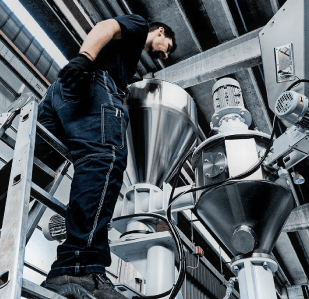An expanded material is one that, through an expansion process, contains a structure with closed or open cells filled with air or gas, making it significantly lighter compared to the non-expanded material. This type of structure gives the material insulating, cushioning, and flexible properties, making it ideal for a wide range of industrial and consumer applications.
Characteristics of Expanded Material
- Lightweight: Due to the presence of air-filled cells, expanded material has a reduced density compared to its solid counterpart.
- Thermal and Acoustic Insulation: The air cells trapped inside the material act as a barrier against the transmission of heat and sound, making it an excellent insulator.
- Elasticity and Impact Resistance: The flexible structure allows expanded material to absorb shocks and vibrations, making it ideal for protective or cushioning applications.
Examples of Expanded Materials
- Expanded Polystyrene (EPS): Commonly used for packaging and thermal insulation.
- Expanded Polyurethane (PU): Used for padding, mattresses, and thermal insulation.
- Expanded Polyethylene: Used for packaging cushions and as an insulating barrier in flooring.
How Is Expanded Material Used?
Expanded materials are employed in numerous industries:
- Construction: Used as thermal and acoustic insulators in buildings and infrastructure.
- Packaging: Employed to protect fragile products during transportation due to their cushioning properties.
- Automotive and Furniture: Used for padding in seats, mattresses, and other items that require comfort and shock absorption.
How Does Bausano Work with Expanded Materials?
Bausano designs extruders specifically for processing expanded materials, ensuring an efficient and precise process. Our cutting-edge technologies allow us to extrude expanded materials with homogeneous properties, perfectly adapting to different production needs, from packaging to insulation. With Bausano, we optimize efficiency and quality in the production of expanded materials.



